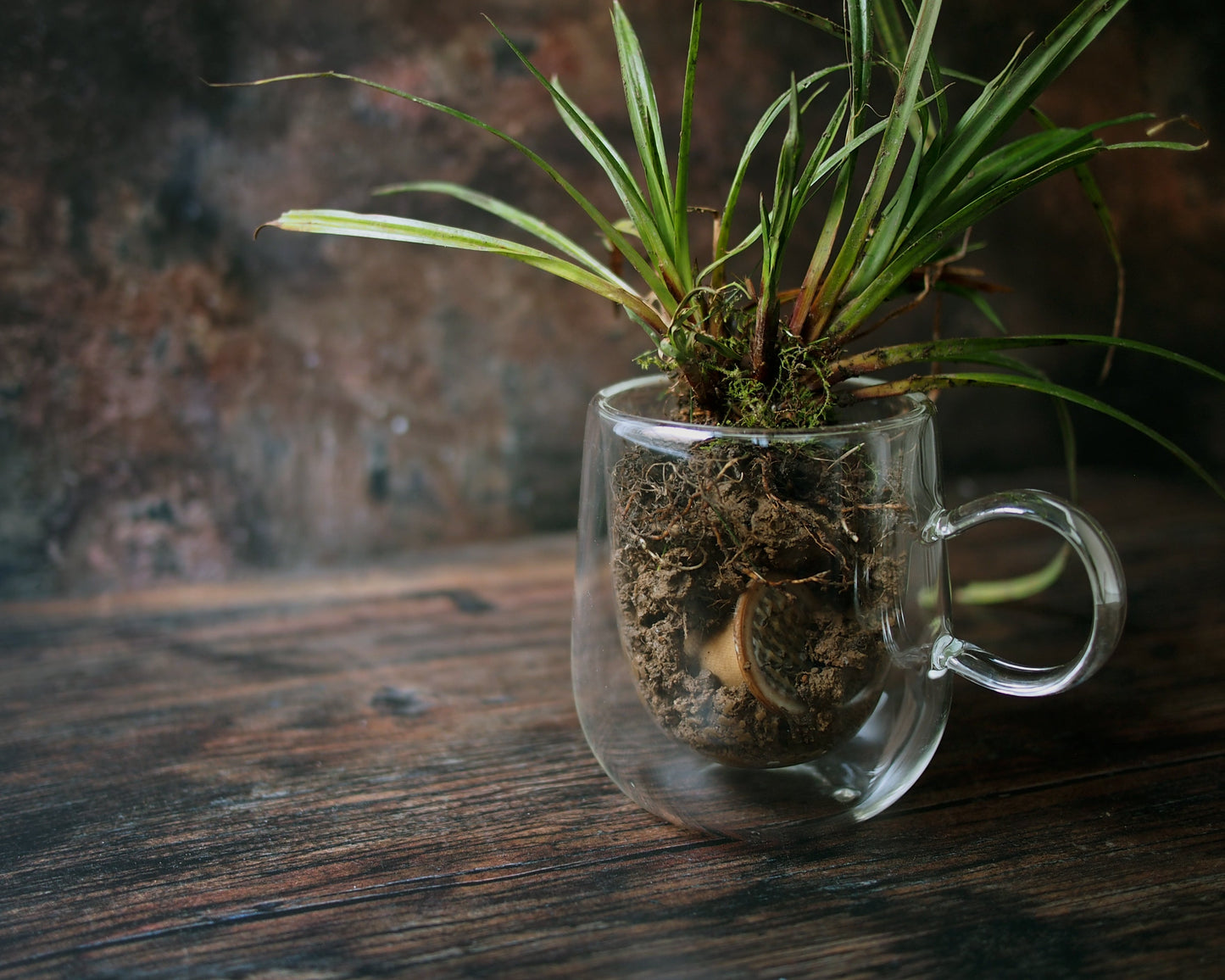ENJOY 15% OFF A NEW SUBSCRIPTION

Home Composting For Beginners
Composting vs Recycling: Why the Future is Compostable
In a world drowning in waste, composting is emerging as the true solution to sustainable packaging. While recycling has long been promoted as the answer, the reality is far from perfect. Recycling rates are shockingly low, with less than 10% of plastic waste actually recycled globally, and aluminium coffee pods present their own set of problems. Many coffee drinkers believe aluminium capsules are an environmentally friendly option but overlook the energy-intensive process and cleaning requirements needed before they can enter the recycling stream. By contrast, home compostable packaging and products can fully break down at home, offering a circular solution by turning into nutrient-rich soil rather than clogging landfills.
How to Compost at Home
Not sure where to start? Rest assured, starting a compost at home is simpler than you might think, and it’s one of the best ways to reduce household waste. The by-product of your labour is a rich soil supplement perfect for gardening.
To get started you need to maintain a mix of green and brown waste. Green waste encourages microbial activity by providing nitrogen, which helps break materials down quickly and, while brown waste adds carbon to give structure to the compost and prevents it from becoming excessively wet or smelly. To keep the decomposition process efficient, turn your compost regularly to improve airflow and prevent anaerobic conditions, which can cause unpleasant odours. With time, anywhere from a few weeks to several months, depending on the weather and other environmental conditions, you’ll end up with dark, crumbly compost that’s rich in nutrients and perfect for feeding your garden.
This homemade compost acts as a natural fertiliser, improving soil structure, enhancing moisture retention, and introducing beneficial microorganisms that help plants thrive. It can be used to enrich garden beds, nourish potted plants, or even revive depleted soil in your lawn. By composting at home, you’re not only reducing landfill waste but also closing the loop on food scraps and organic materials, turning them into something beneficial for the environment.
If you’re unsure where to start or don’t have the space for a compost bin, consider reaching out to your local council to see if they offer home composting programmes. Many councils provide subsidised compost bins, composting workshops, or food waste collection services that accept compostable materials. Some even have community composting initiatives where you can drop off your organic waste to be processed locally. Checking with your council can help you find the best composting solution for your household.
Composting Halo Coffee Capsules
At Halo Coffee, we’ve designed our capsules to break down quickly and return nutrients to the earth. Our Classic Capsules are fully home compostable within 28 days. Even better, we consider our classic compostables to be garden- compostable. This means you can place the classic pulp capsules directly into your garden topsoil, where they will naturally break down with no bin required. Our Alternative Capsules, designed for longer freshness, are also fully home compostable but take slightly longer to the tune of six months in a traditional compost bin. Either way, you’ll never need to worry about waste when drinking Halo Coffee.
Alternative Uses for Coffee Grounds
Looking beyond composting to give your coffee grounds new life?
Beyond composting, coffee grounds have many practical uses around the home and garden. You can mix used coffee grounds with sugar and coconut oil to create a natural exfoliating scrub. Coffee grounds are also a fantastic soil booster that can be sprinkled in to add nitrogen. They can even act as a natural pest deterrent, keeping slugs and ants at bay.
Sustainable Coffee, the Right Way
At Halo Coffee we believe the future of coffee isn’t in recycling, it’s in composting. With our home-compostable capsules, you can enjoy your coffee without adding to the global waste crisis. Whether you’re composting in a bin, mixing grounds into your soil, or repurposing them for skincare, every small step helps create a more sustainable future.
